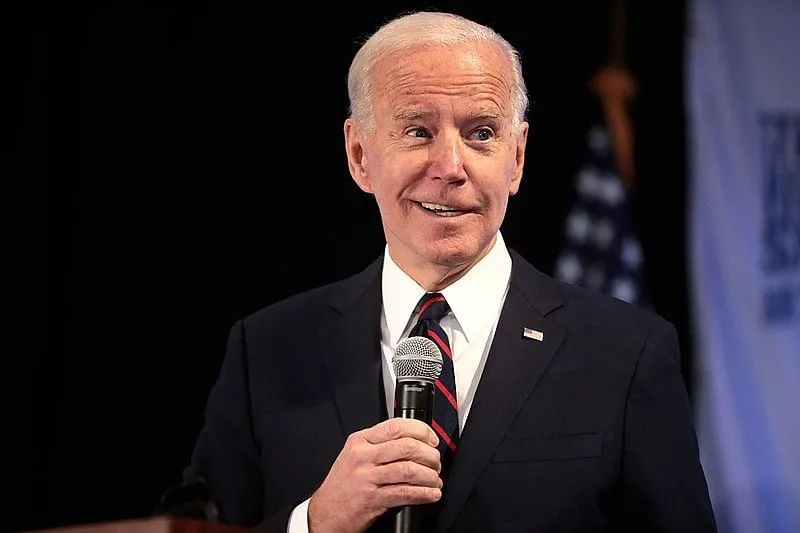The recently concluded US mid-term elections attracted international attention because the world’s pre-eminent country’s politics has global implications. The 2020 elections which brought Joe Biden to the presidency also gave his Democratic Party control of the House of Representatives as well as the Senate. In the latter chamber both the Republicans and the Democrats had 50 seats each but with the casting vote, when required, of Vice-President Kamala Harris who chairs the Senate, the Democrats were in effective control.
Normally, a US President’s party does poorly in the mid-term elections. This time around it was expected that the Republicans would do very well; in fact, a Red wave, representing the colour of the Republican party, was expected to help that party not only gain control of both chambers but reduce Democrat numbers very substantially. It may be clarified that the House is elected every two years while one-third of the Senators come up for elections every two years for they have a six-year term.
As I write these lines it seems that the Republicans would gain a slim control of the House of Representatives but there is no clarity if they will win the Senate as well by the smallest of margins. Thus, all in all, there has been no Red wave. And this was emphasised by Biden at a press conference on November 9 when most of the results had come in. He said “…we lost fewer seats in the House of Representatives than any Democratic President’s first midterm election in the last forty years. And we had the best midterm for governors since 1986”.
The complexities of US politics make it difficult for a President to push his legislative agenda fully even if both the chambers are under his party’s control. However, his problems get greatly compounded when the US legislature goes under the other party’s hold. He then finds it difficult to push his domestic agenda. At the same time the implementation of his foreign policies also become more problematic. It is only on a few issues where there is a bipartisan American consensus that the President finds it possible to move ahead without obstacles. At this time of great polarisation in US society and polity Biden may be compelled to make compromises in the way he has handled foreign policy issues though, at his press conference, he displayed determination to stick to both his domestic and foreign policies and expressed the hope that enough Republican Senators and Congressmen, i.e., members of the House of Representatives, will support his agenda.
The two main foreign policy challenges which confront Biden are the Ukraine war and the management of the rise of China. Not only Biden but the US strategic and political classes would be aware that they will now have to confront a China under the complete control of President Xi Jinping who has, following the recently concluded 20th Communist Party Congress, gained a full grip over all the levers of Chinese power and is determined to achieve Chinese destiny. How will the US handle these two challenges if the Republicans control both the Senate and the Congress?
The Republican leadership has warned Biden that a Congress controlled by them will not give him a ‘blank cheque’ for supporting Ukraine. Biden asserted, at the press conference, that he had not given the Ukrainians any “blank cheque”. He had ensured Ukraine’s defensive needs but had not given them any systems with which it could take action on Russian territories. He had also not given US air cover over Ukraine’s skies because “We’re not going to get into a third world war, taking on Russian aircraft and directly engage”. Biden said that he doubted if the Republican leadership would not “fund the defensive needs of Ukraine”.
Interestingly, in response to a question on the withdrawal of Russian forces from Kherson in the wake of Ukrainian operations Biden noted that the approaching winter would “lead” to a time for everyone to “recalibrate” and “it remains to be seen if Ukraine is prepared to compromise with Russia”. He did not elaborate but till now the Ukrainians have insisted that Russia must vacate all internationally recognised Ukrainian territory and has also, naturally, rejected the amalgamation of certain Ukrainian territories into Russia. Hence, Biden’s observation on “compromise” is intriguing.
Biden will meet Xi Jinping at the G20 summit next week in Indonesia. He takes pride in knowing him well and always recalls the 78 hours that he has spent with him. Biden emphasised three significant points that he will convey and discuss with Xi. These are not new but important nevertheless. He said that he will reiterate that he is looking for “competition” and not “conflict”. He will ask Xi to lay out China’s red lines and he will do the same for the US. These will concern areas relating to the “critical national interests” of both countries. They can thereafter determine if these conflict with each other and, if so, how to resolve them. The other issues he will focus on are fair trade and China’s relationships with countries in the region. The important issue for India is if this formulation suggests that he will discuss the current status of Sino-India ties. How should India view this? Biden emphasised that the US’s Taiwan doctrine has not changed.
India will have to watch the Biden-Xi meeting very closely for if should not get caught off guard with any change in the US approach to China notwithstanding all pointers to the most significant global theme of our times—the growing and fundamental differences between the US and China.







